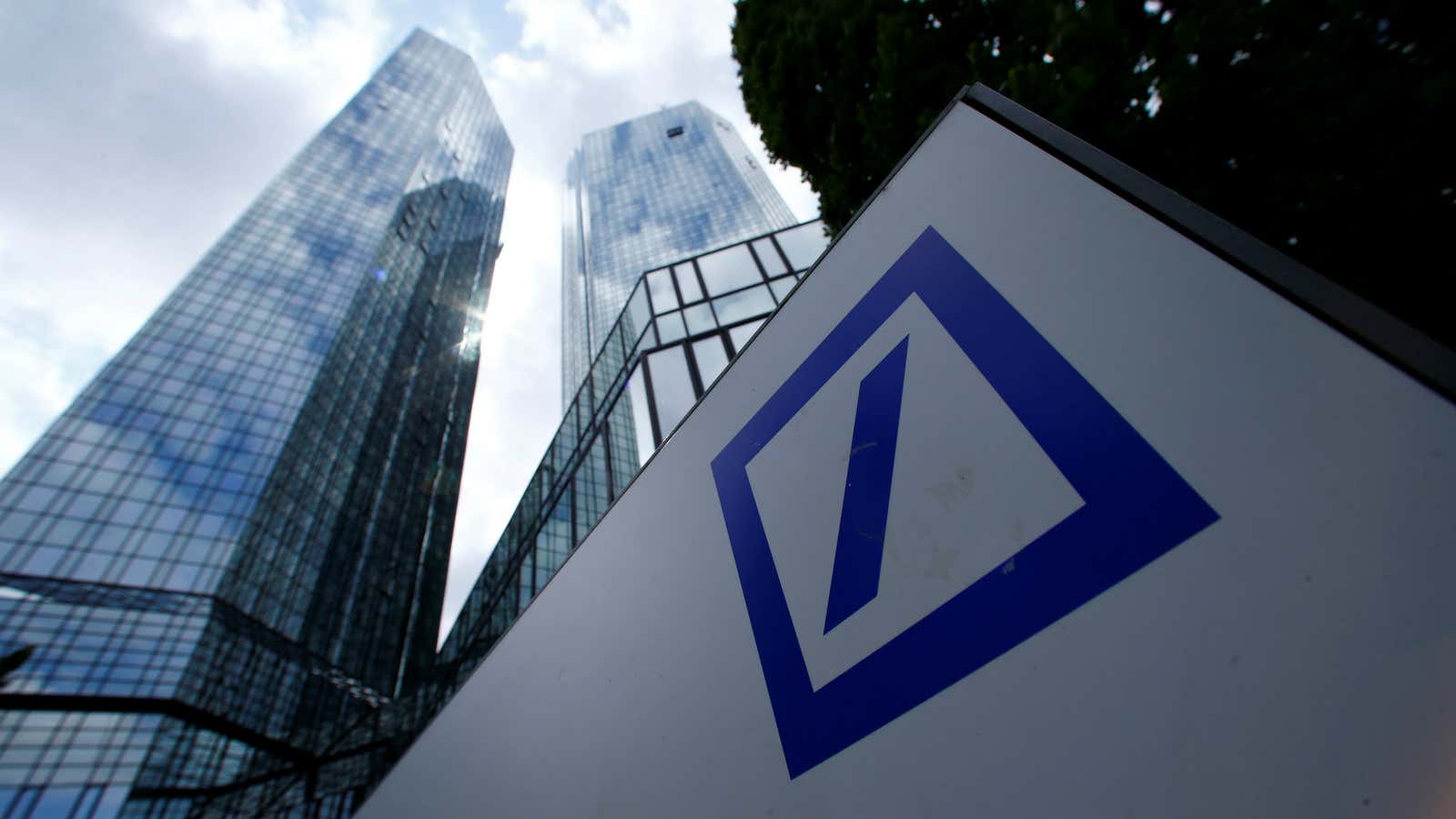Deutsche Bank had a torrid time during the financial crisis—in 2008, it lost nearly €4 billion ($5.9 billion at the time). Things haven’t gotten much better since. In fact, they are much, much worse.
The bank’s share price dropped to a new all-time low today (Sept. 26), on news that the German government has ruled out any aid for the ailing company. Amid persistent losses and never-ending legal entanglements, investors have been fretting about the strength of Deutsche Bank’s balance sheet. (Indeed, the bank failed a US stress test this summer.)
The market value of the bank’s assets is currently only a quarter of their book value, suggesting that traders think that the lenders’ value-destroying ways are far from over. And who can blame them?
Deutsche Bank’s market cap has fallen by nearly €50 billion from its all-time high, with a third of the drop this year alone:
Tiny profits so far this year pale in comparison to a monster loss in 2015, the largest in the bank’s history and equivalent to the previous four years’ worth of profits:
Another big loss may be on the cards this year, with the US Department of Justice mulling a $14 billion fine against the bank for its misdeeds selling mortgage-backed securities. That would roughly double the hefty legal fines that the bank has already paid out over the past few years:
Lackluster economic growth in Europe, combined with low or negative interest rates across the continent, will make it particularly hard for Deutsche Bank to reverse its fortunes (so far this year, it has eked out a return on equity of only 1%).
And this isn’t just a concern for the German government or the bank’s long suffering shareholders—this summer, the IMF dubbed Deutsche Bank the world’s most dangerous bank, given its size, riskiness, and extensive links across the global financial system.




